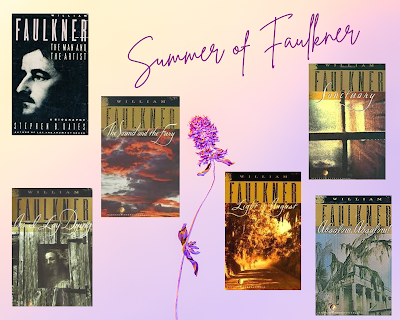For many years, I’d look forward to summer as a time to catch up with some reading I wasn’t able to tackle during the cooler, busier months. I’d choose a series—such as Hilary Mantel’s first two books in the Wolf Hall trilogy (still haven’t read the third), or I’d tackle a classic I thought might be laborious—a collection of Chekhov stories or Henry James’s The Golden Bowl (very laborious!). And in 2018, I made this habit a formal endeavor when I christened “The Summer of Chabon” and read four novels by Michael Chabon. And so, each summer I choose a reading project based on a theme. 2019 was The Summer of Trees, 2020 was dedicated to books related to France, and last year, The Summer of Houses books all featured a house as an integral part of character, plot or theme.
In recent years, my leisure reading has slowed down overall, as I began to read more for my day jobs of teaching and editing. Where I used to read 50+ books a year, I’m lucky to get into the mid-20s these days. This year I’m sitting at thirteen novels read. With so much going on, I often find myself lacking the mental stamina to sit and read for long periods. What better time to pick up several novels by an American master who’s also considered one of the most difficult to comprehend?
For 2022, I’ll be reading and re-reading several books by and about William Faulkner. When I was in college, I took a course on Southern Literature with Professor Margaret Whitt. That class, and that teacher, was one of the seminal experiences of my life (maybe I took 2 or 3 courses with her?), and it ignited a love of gothic lit and introduced me to so many authors—Sherwood Anderson, Katherine Anne Porter (everyone should read more KAP!), Carson McCullers (!!!), Flannery O’Connor, Ralph Ellison, etc., etc.—the combined influence of which I believe has had the most seismic and lasting effect on my own writing.
For The Summer of Faulkner, I have five novels and one biography on my list. I realize this is probably unrealistic, but here we are. The good news is, I’ve already finished the biography, William Faulkner: The Man and the Artist. It’s excellent, written in a novelistic style, taking the reader from 1902, when “Billy” Faulkner’s family relocated to Oxford, Mississippi, to his death in a Byhalia sanatorium in 1962. Faulkner was, of course, famous for his writing but also for his prodigious drinking, and his life was struck by tragedy and a series of troubled, complicated romantic attachments and relationships. The emotional frustrations and drinking coexisted and interrelated, like linked, winding strands of his psychological DNA. He told an early paramour “Between grief and nothing I’ll always take grief,” and his biographer returns to this sentiment several times. Faulkner certainly weathered his share of grief, and physical ailments as well—he suffered a terrible burn after a drinking bout, and he had recurring back problems—more reason for him to turn to liquor.
I learned much about Faulkner, including his love of fox hunts (the “thrill of danger,” he said) and his time in Hollywood writing screenplays—primarily for the paychecks—and his travels back and forth. Later in life, he wrote about “the Negro problem” and his complicated sentiments about the South and Civil Rights that appear in these essays and, of course, throughout his entire oeuvre of fiction. Writers may want to reacquaint themselves with the wonderful speech he gave in 1950 when he won the Nobel Prize. You can read it here or listen to Faulkner himself here.
William Faulkner published 19 novels, 125 short stories (I didn’t mention the stories! So many stories, including “The Bear,” which some consider one of the best of all time), 20 screenplays, one play, six collections of poetry, and various essays. It seemed to me there were several approaches to choosing which novels to read but in the end, I went with a fairly simple strategy. I chose five novels in chronological order, during a particularly productive era of the writer’s life. Two of them I have read before, but it’s been many years. These five novels are:
The Sound and the Fury (1929)
As I Lay Dying (1930)
Sanctuary (1931)
Light in August (1932)
Absalom, Absalom! (1936)
There was a book in 1935 called Pylon, but I skipped that one. And to be honest, if anything doesn’t make the cut this summer, it’ll be the last one, Absalom, Absalom! I have read two of the more famous novels on the list, The Sound and the Fury and Light in August, and considered leaving the former off the list. But I didn’t, and I’ll be starting with The Sound and the Fury (if you recall, a title taken from Macbeth). Looking to confound and frustrate yourself over the calm, summer months? Join me! I’ll be reporting back on my progress as I take this adventure, and I’d love to hear your impressions as well.
Note: in 2005, Oprah did a Summer of Faulkner as part of her reading club, and you can buy three of these novels in a boxed set, if that's of interest.
